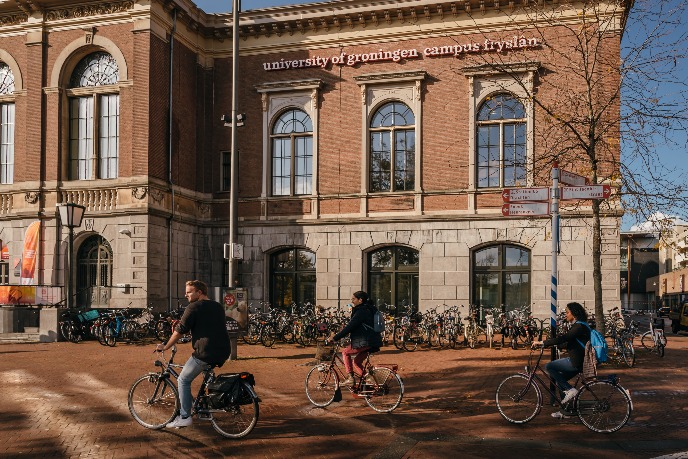Data Science & Society in a Nutshell
| Date: | 23 March 2022 |

Data Science & Society, what was that again? What were the courses, and where can I apply? This blog post will give you an overview of everything you need to know about Data Science & Society.
About the programme
Data Science & Society at Campus Fryslan is a unique Bachelor that gives you the opportunity to understand data from the societal perspective. ‘Datafication’ is something affecting all sectors within society and you will discover data-driven solutions in a fair, responsible and sustainable way. This means that you become an interdisciplinary bridge-builder who can connect the dots. To achieve this, you study about data through different lenses:
- Data of Society: Where you learn about data generation, responsible institutions and the ethicalities surrounding data creation
- Data on Society: To read and understand data, gain insights and ways of processing data.
- Data in Society: Which focuses on the ethical, legal and social issues related to data. Next to this, it also looks at how data can be used in a meaningful, legitimate and purposeful way.

Course overview
Learning about data through different lenses means this is an interdisciplinary programme, where you study an issue from different perspectives. During Data Science & Society, these perspectives with their related courses are:
- Quantitative and Numerical Perspective
The Quantitative and Numerical Perspective goes into the hard sciences and skills that will be needed for Data Science. You will follow courses on Programming in languages ‘R’ and ‘Python’. Next to this, you have courses on Data Visualisation, Statistical models, Machine Learning, Big Data and Causal Thinking.
- Philosophical and Sociological Perspective
The Philosophical and Sociological Perspective goes into the ethicalities surrounding data and the implications data has upon society. Therefore, courses in this field will go into Science and Technology Studies, Ethics and Fair use of Tech, Gaining knowledge through Data and Responsible Datafication.
- Governance Perspective
The Governance Perspective builds upon the philosophical and sociological implications of data upon science. This means it translates the implications into laws and regulations. Courses will be on Regulation, Human Rights in the Digital Age and Legitimate use of Biometric Data.
The specialisation in the second year determines the perspective you will focus on. You can choose to specialise in ‘Cognitive Technology’ or ‘Governance and Regulation of Innovation’. Cognitive Technology is about human data relating to the sensory modalities of audition and vision. Governance and Regulation of Innovation looks at how data is, could and should be used to create a positive impact on society. In the third year, you can choose to specialise even more on your personal interests when writing your Thesis.

After Graduation
Once graduated you can choose to continue your studies or join the workforce. If you would like to continue your studies, you can consider a Masters in Voice Technology or Governance and Law in a Digital Society at Campus Fryslan. Or, follow the Master Computer Vision and Data Science at NHL also in Leeuwarden. Otherwise, you can also go to Groningen (or any other place) for Master’s in the field of AI, computer science, law and regulation, political science, international relations and more. This Bachelor is truly interdisciplinary, your Master completely depends on your specialisation and your field of interest.
You can also choose to dive into the workfield. Possible job careers, just like the Masters, depend a lot on your specialisation and field of interest. However, this Bachelor has been created together with a Programme Advisory Council to tailor students to the workfield. Companies that supported the creation of this study and companies that are therefore looking for you are CBS, The GovLab, Microsoft, Philips and Astron. However, datafication is an issue affecting all sectors of society, meaning you can find jobs anywhere!
Fees and applications
To apply for this study there are a few criteria to fulfill. First of all, you will need a Dutch VWO diploma or any other international equivalent. Secondly, it is important to have a passing grade in Mathematics. For Dutch students, this can be either Wiskunde A or Wiskunde B. Finally, you also need a passing grade in English or any other accepted Language Certificate. The official application deadline is May 1st.

